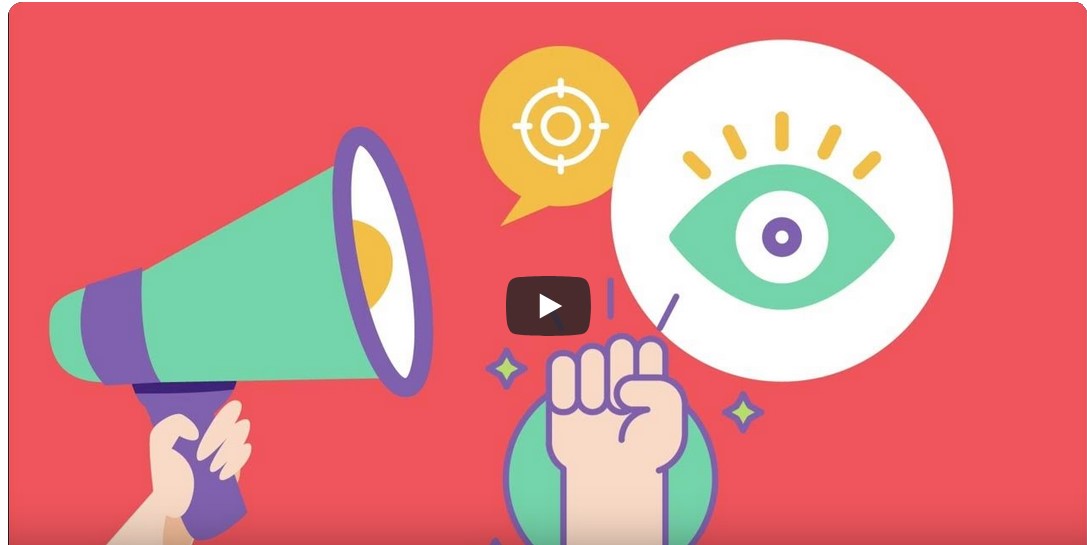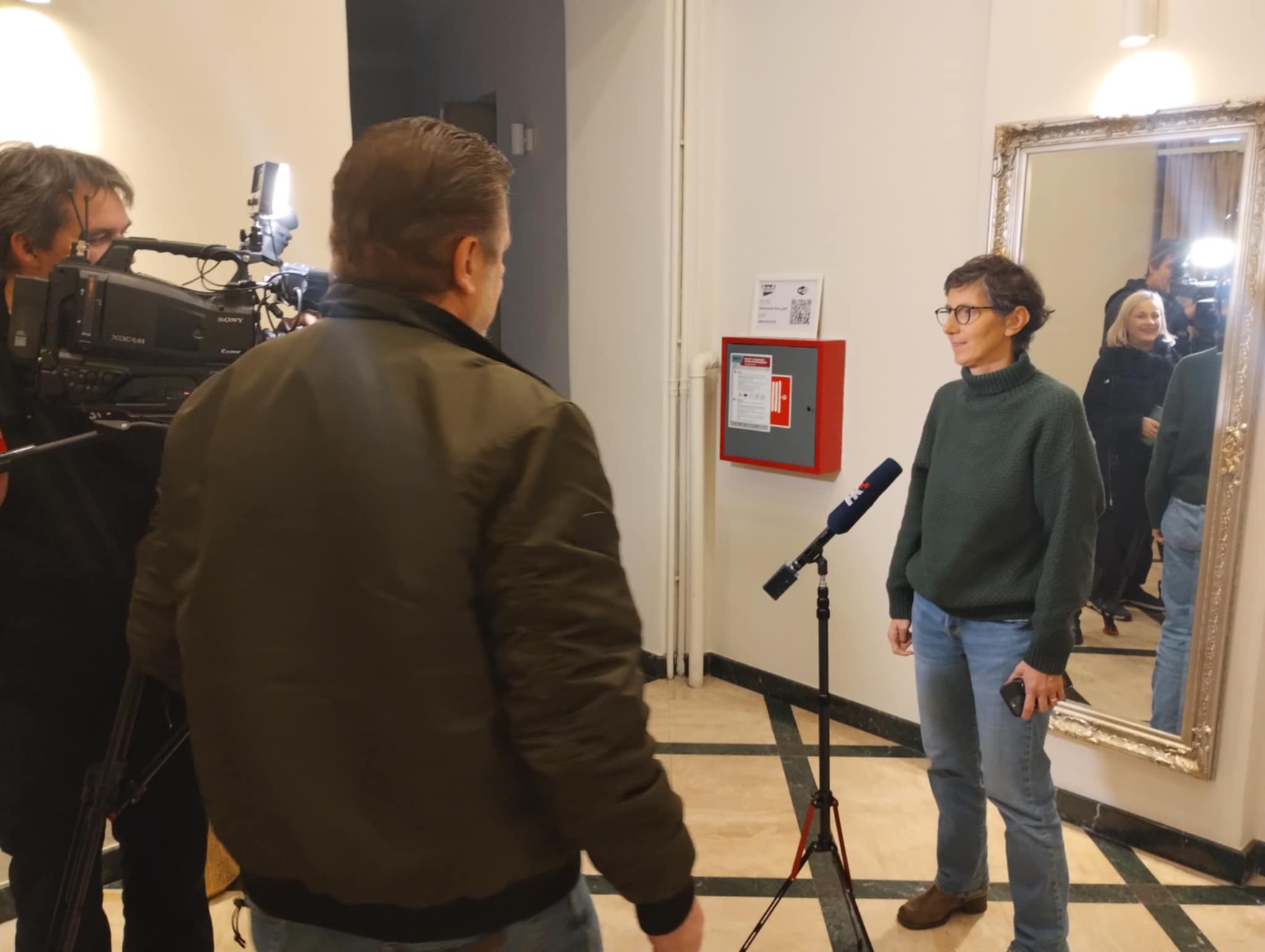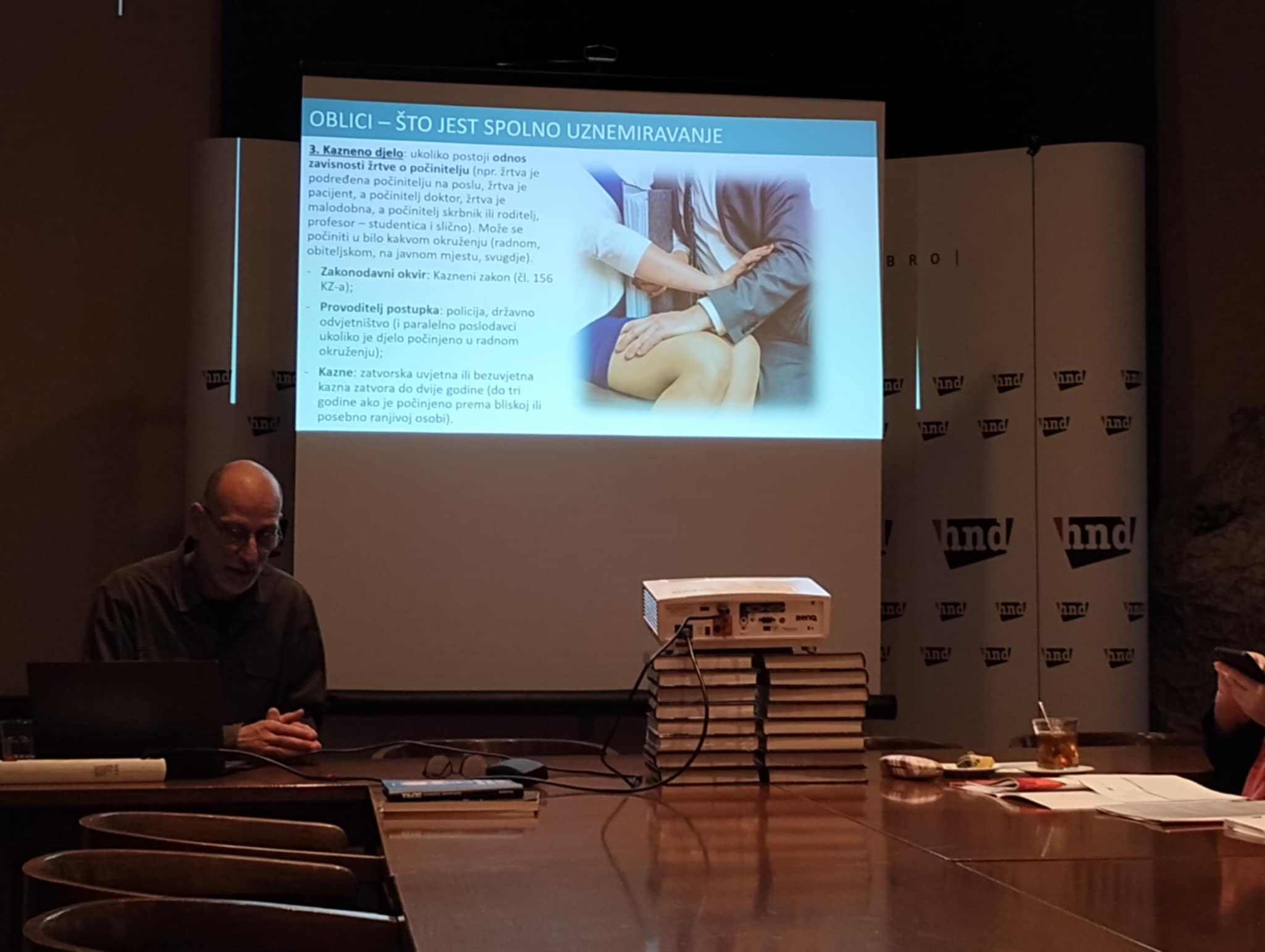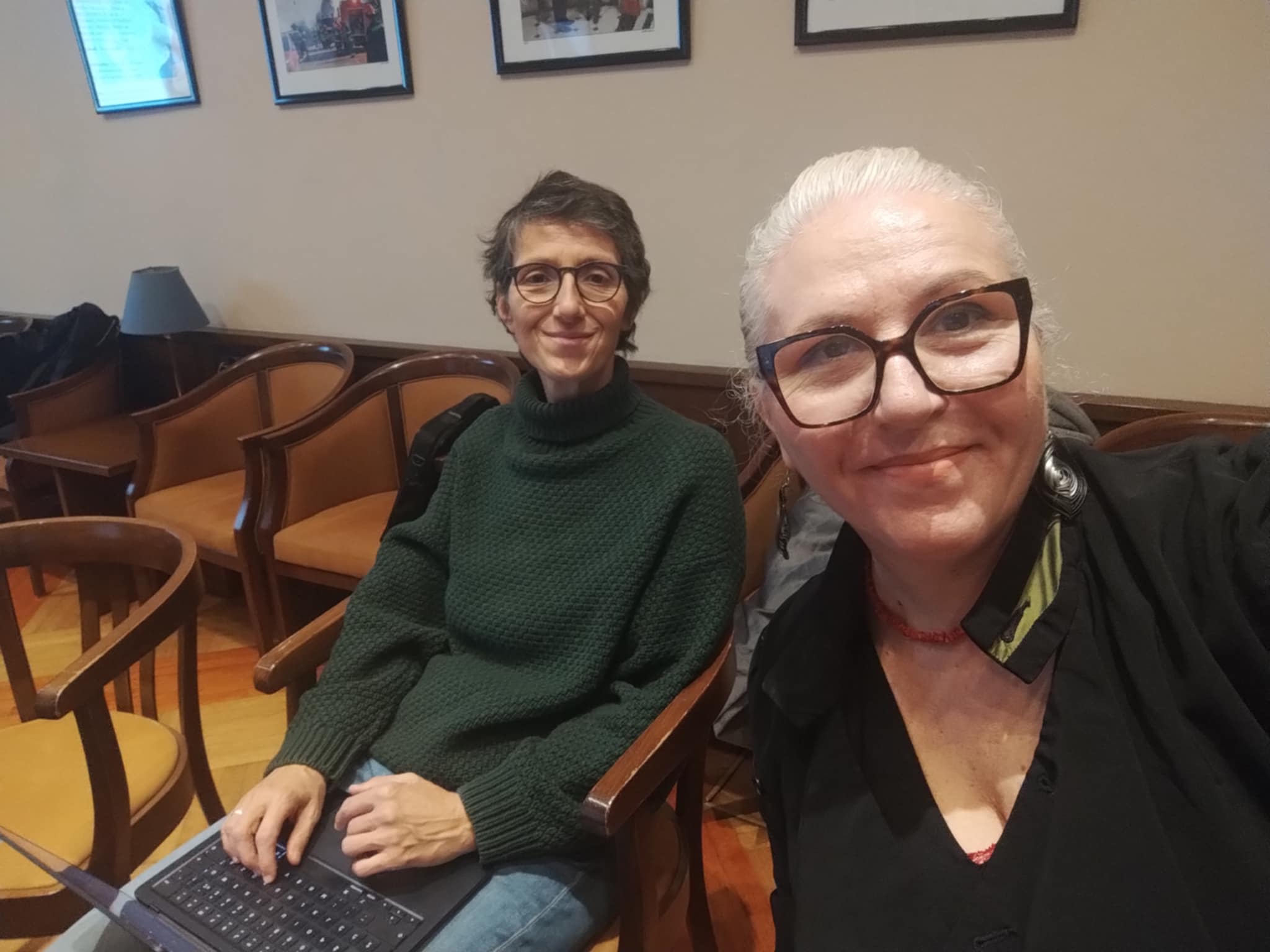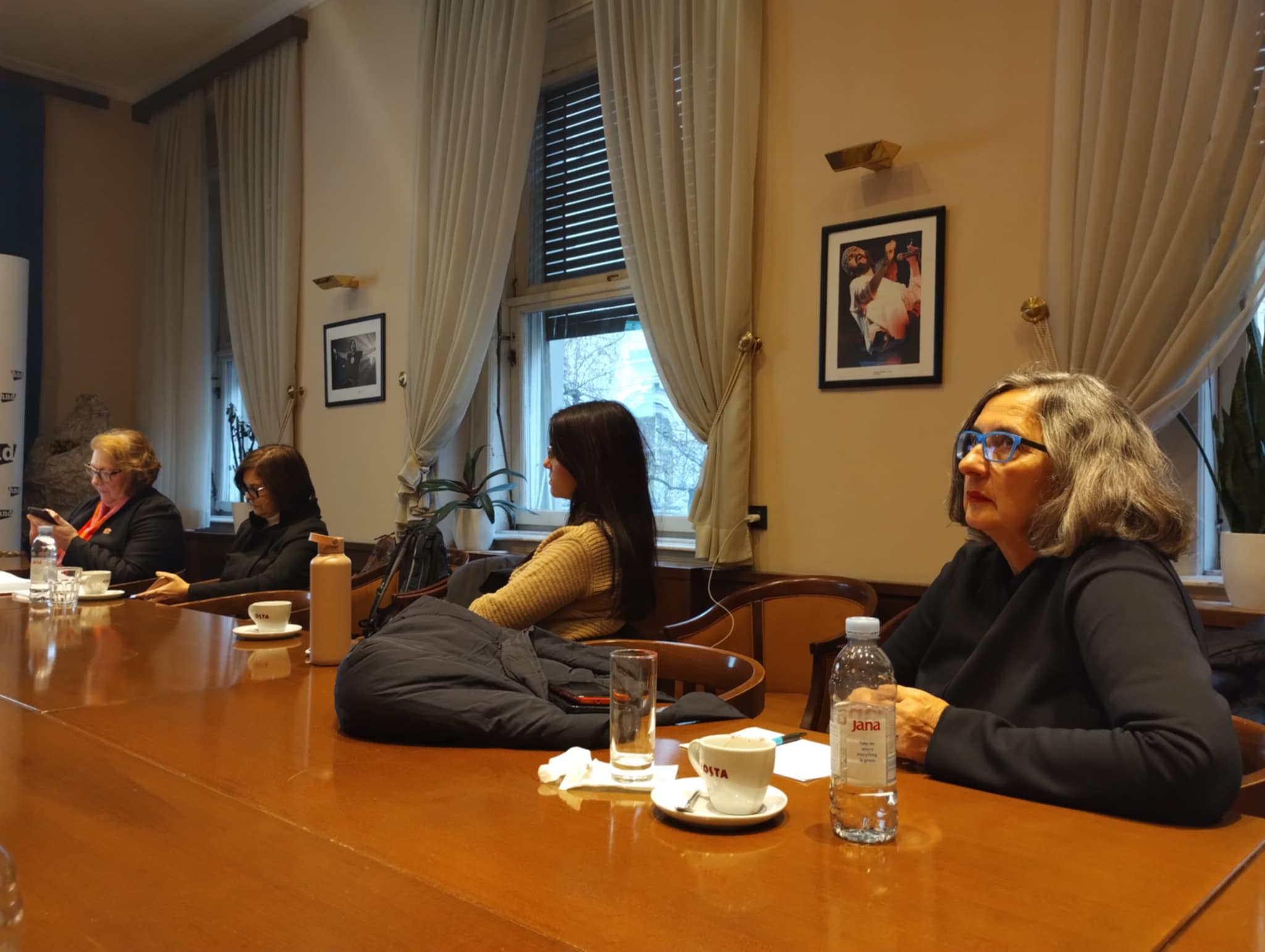Report on the Workshop: Sexual Harassment in the Workplace
Gender Equality and Sexual Harassment Prevention Training for SRCE Employees
Following the successful training of journalists in collaboration with the Croatian Journalists' Union, a training session was held for 112 employees of the University Computing Centre of the University of Zagreb (SRCE). The Ombudsperson responded to SRCE's invitation and conducted an online training session on December 3, 2024, as part of the implementation of SRCE's Gender Equality Plan for the period 2022 to 2025, and within the EU project Teamwork2 - combating sexual harassment in the workplace, in which the Ombudsperson is involved as a supporting organization.
Link: https://www.srce.unizg.hr/
Advisors to the Ombudsperson, Nebojša Paunović and Josip Grgić, introduced the participants to gender equality mechanisms, the institutional and legislative framework with a special focus on employment and work, sexual harassment as a form of gender-based violence, and the balance between work and private life. Through experiences and concrete examples from the Ombudsperson's work, the lecturers explained the international and national legislative framework and practice, as well as the key obstacles and challenges in these areas.
As part of the European project Teamwork2, the training aims to strengthen mechanisms for preventing sexual harassment in the workplace by building the capacity of employers and other organizations to improve and develop internal legal frameworks for the protection of victims and the punishment of perpetrators. The goal is also to encourage a wider circle of employers and other organizations, institutions, companies, and business entities to build coalitions and strengthen cooperation through mechanisms for exchanging experiences via guild, professional, and other organizations, and ultimately to improve the protection of individuals who have survived gender-based and sexual violence in the workplace through the provision of specialized services, improvement of the legal framework and internal legal acts, and strengthening mechanisms for the protection of victims and prosecution of perpetrators.
Link: https://prs.hr/cms/post/1350
A total of 112 employees of the University Computing Centre attended the training, and further cooperation has been agreed upon.
Project Partners
The Center for New Initiatives/CEE Gender Network is also a partner in the Teamwork2 project. Although they did not participate in the SRCE training, their support and collaboration are crucial for the success of the project. Together, we are working towards creating a better and safer working environment for everyone.
Report on the Workshop: Sexual Harassment in the Workplace
Combating Sexual Harassment in the Workplace TeamWork2
The workshop "Sexual Harassment in the Workplace" was held on December 2, 2024, at the Journalist Club of the Croatian Journalists' Society, gathering 12 journalists from HRT, HR, and 24 sata. Conducted in a hybrid format, the workshop is part of the European project TeamWork2, organized in observance of the International Day for the Elimination of Violence Against Women and the Sixteen Days of Activism.
Organizers and Objectives
The workshop was organized by the Center for New Initiatives/CEE Gender Network, in collaboration with the Gender Equality Ombudsperson and the Croatian Journalists' Union. The project focuses on the journalism profession and will be presented in the Croatian Journalists' Union.
Introduction and Legal Aspects
Project leader Lovorka Marinović emphasized the importance of an open HELP DESK for reporting harassment cases. Legal advisor of the Ombudsperson, Nebojša Paunović, discussed legal issues and the slow pace of court proceedings, highlighting the need for quicker responses from the system.
Definition and Categories of Sexual Harassment
Sexual harassment is defined as unwanted behavior that violates personal dignity. Categories include labor law violations, misdemeanors, and criminal offenses, each with different penalties.
Psychological Aspects
Psychologist Radojka Kraljević highlighted the importance of recognizing trauma and its effects on victims, including stress reactions and emotional difficulties.
Reporting on Sexual Harassment
Journalists were educated on ethical guidelines for reporting, including respecting the dignity of victims and avoiding sensationalism.
Conclusion
The workshop provided important tools for recognizing and reporting sexual harassment, aiming to improve safety and equality in the workplace. The "TeamWork2" project focuses on preventing and addressing cases of sexual harassment, educating victims, employers, and civil society organizations. Together, we are working to establish a functional system for protecting victims through this initiative.
Promoting the Results of the Teamwork2 Project
Combating Sexual Harassment in the Workplace
As part of the EU project "TEAMWORK 2: combaT sExuAlharassMent in the WORKplace," we are excited to announce the launch of an innovative online platform designed for Human Resources (HR) professionals. This cutting-edge tool allows companies to self-assess their policies on recognizing, preventing, and protecting against sexual harassment in the workplace.
Companies that successfully complete the self-assessment test will earn a prestigious "Harassment-Free Workplace" badge, showcasing their commitment to a safe and respectful work environment. For those who may not achieve a satisfactory score, the platform provides valuable advice and suggestions to enhance their policies and practices.
Additionally, we have developed comprehensive guidelines and a capacity-building seminar program tailored for HR managers, team leaders, and executives. These resources aim to equip organizations with effective strategies to prevent and address sexual harassment issues within their workplaces.
For more information and access to all resources mentioned, please visit the project's official website through the highlighted links in this post: https://teamwork2project.eu/hr/results/
Together, we can create safer and more inclusive work environments!
Empowering Change: The Peer Round Table Led by Misho Grablev Unites Efforts Against Workplace Harassment Through TeamWork2
Uniting Europe: TeamWork2's Exchange and Brainstorm on the progress of the project
July 16th and 17th 2024
The Peer Round Table, organized and led by Misho Grablev from Bulgaria, brought together representatives from various organizations—all part of the TeamWork2 project focused on combating sexual harassment in the workplace. Each organization had 20 minutes during the event to present their work, introduce guests, and address specific questions. Notably, the Croatian team, led by CEE Gender Network, included project partners actively participating in workshops. Additionally, the recent commercial promoting the Help Desk at the Ombudsman for Gender Equality was broadcast on HRT (Public TV) and local TV.
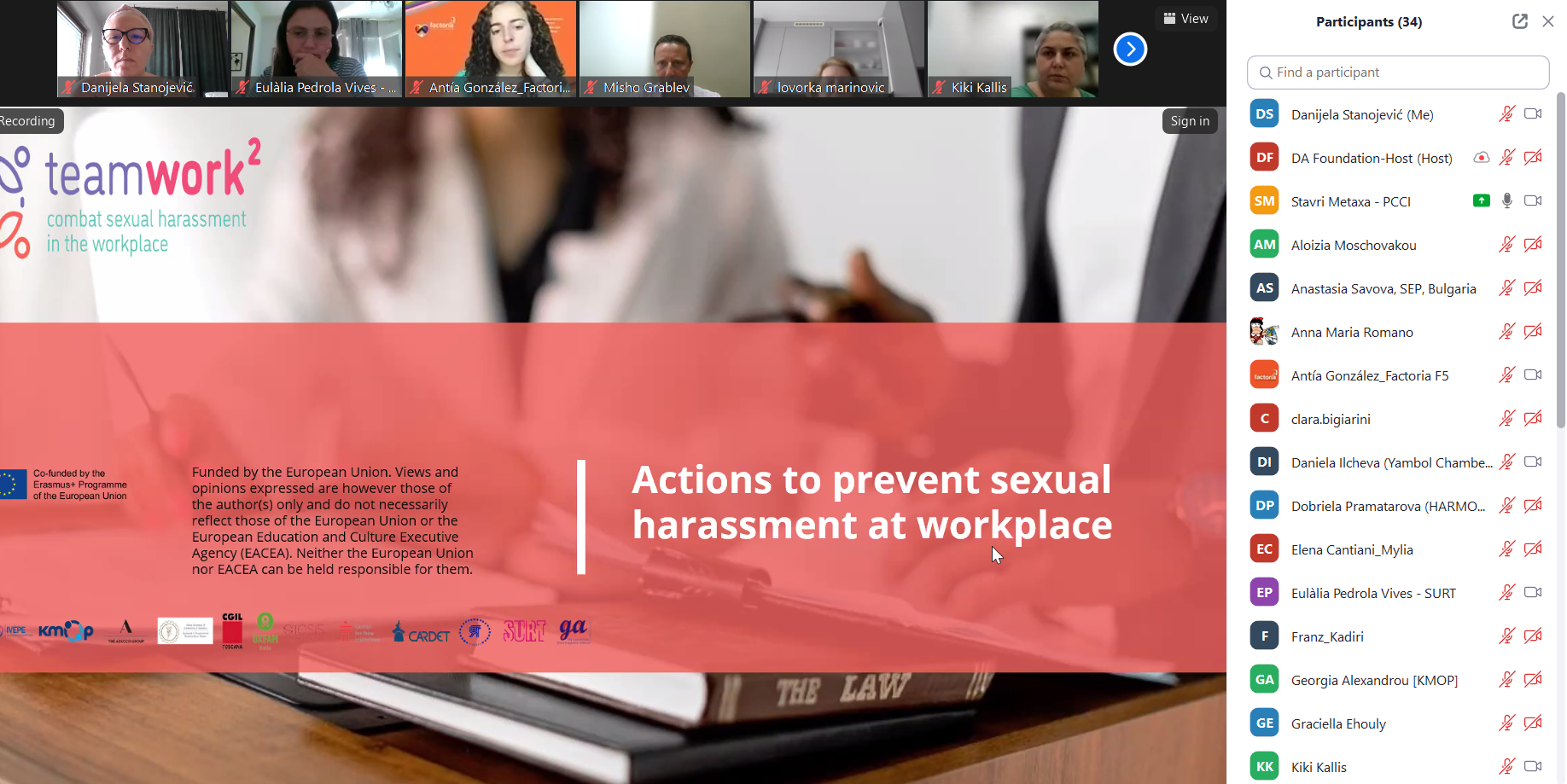
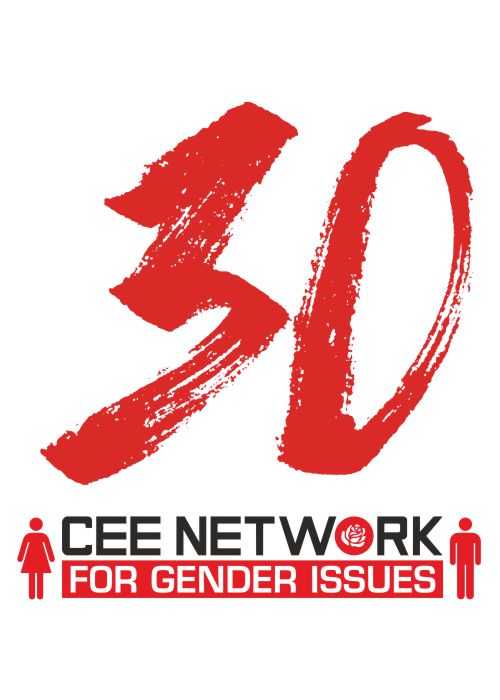
Teamwork2: “Combating Sexual Harassment in the Workplace”
Combating Sexual Harassment: Workshops and Initiatives in Croatia and Italy
Education Sessions at Libertas International University and the Chamber of Commerce of Florence
May 21, 2024
An important education session took place at Libertas International University in Zagreb, Croatia, targeting students majoring in Sports Management and Sports Organizations. The focus was on combating sexual harassment within the sports environment. Participants delved into definitions, legal frameworks, and recognizing signs of sexual harassment. The session also presented research findings and statistical indicators related to this issue. Notably, there has been an increase in complaints over the past five years, spanning all levels of severity (misdemeanor, discrimination, and criminal). The #nisamtražila initiative, active since January 2021, has driven awareness and reporting within educational institutions. Radojka Kraljević led the workshop, providing effective approaches for addressing sexual harassment. A total of 24 participants attended.
May 29, 2024: Chamber of Commerce Workshop in Florence
The Chamber of Commerce of Florence organized a workshop for local and regional enterprises. The event aimed to sensitize companies about prevention and response to sexual harassment (SH) in the workplace. Attendees were keen to learn about the Team Work 2 project and the role of the helpdesk. The Italian Chamber of Commerce sought insights from participants, especially regarding their experiences with Teamwork II. Danijela Stanojević, the communication manager, highlighted a recent case in the Croatian film scene. Renowned film and theater director Dalibor Matanić had sexually harassed young actresses for over a decade. Despite the actresses not formally reporting the case, the helpdesk received three written reports and 43 phone calls related to the incident. As a result, a 30-second advertisement promoting the helpdesk will air on Croatian Radio Television, with other countries following suit.
Nebojša Paunović’s Workshop for the Society of Croatian Movie Directors
On the same day, Nebojša Paunović, from the Ombudsperson for gender equality, conducted an education session for members of the Society of Croatian Movie Directors (Društvo filmskih redatelja). Psychologist Bruna Nedoklan discussed violence and violent communication, while legal advisor Nebojša Paunović explained legal mechanisms. The gathering centered around the high-profile case of director Dalibor Matanić’s sexual harassment of young actresses. Notable attendees included Ksenija Marinković (president of the Croatian Society of Film Workers), Chris Marcich (director of the Croatian Audiovisual Center), and Maja Vukić (deputy director of HAVCA). The need for further workshops was expressed, emphasizing the importance of addressing sexual harassment in the industry. A total of 12 participants engaged in this crucial dialogue.
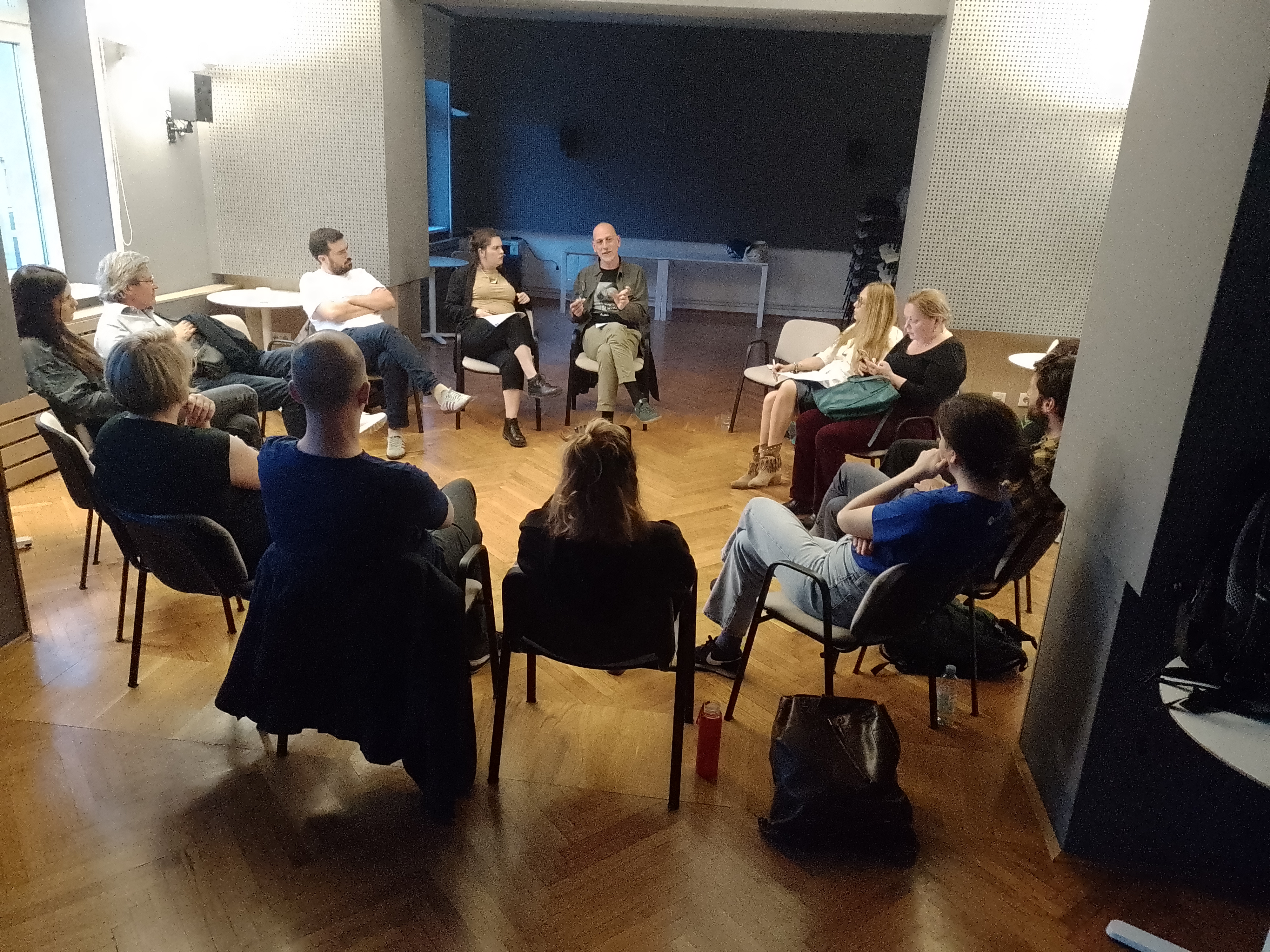

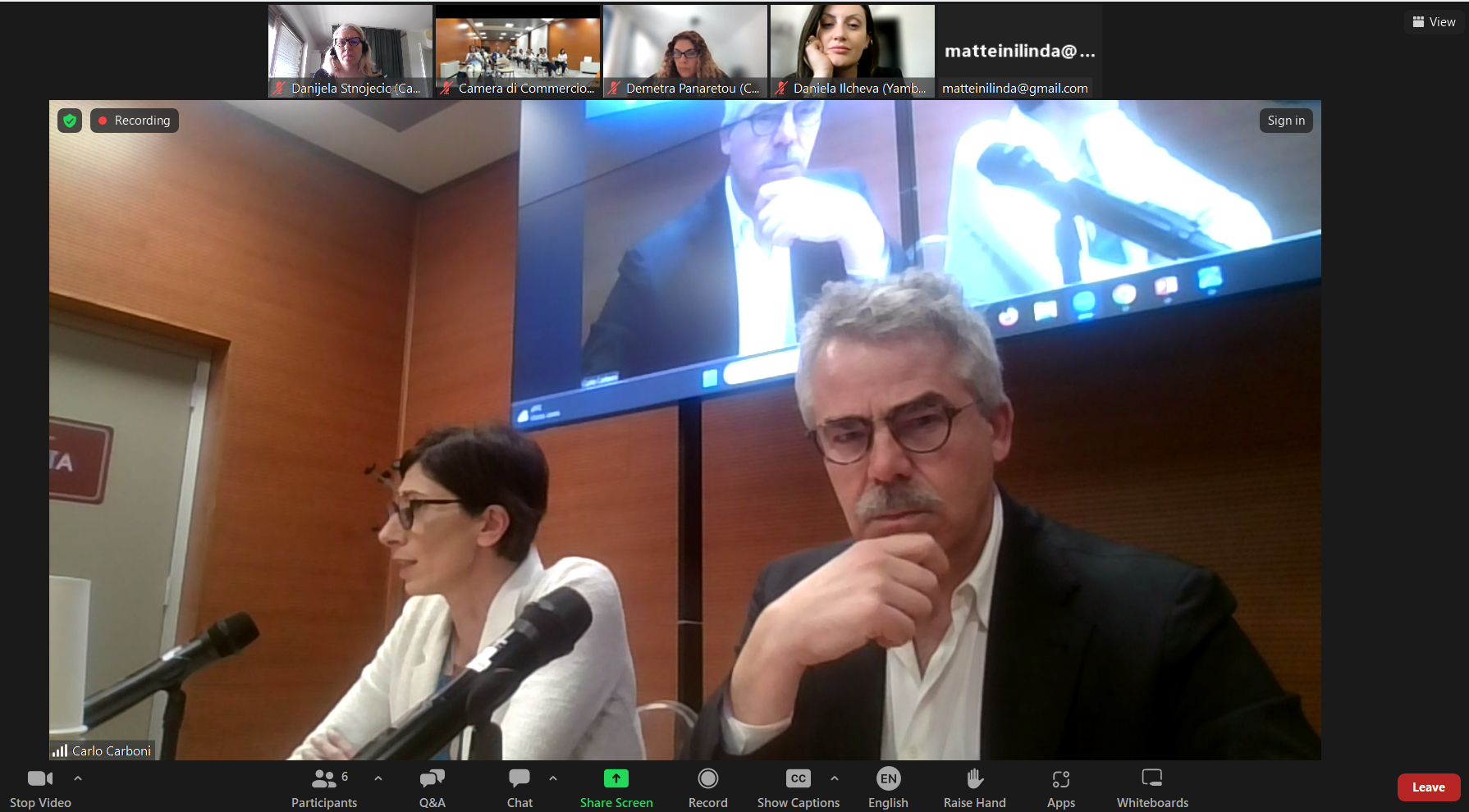
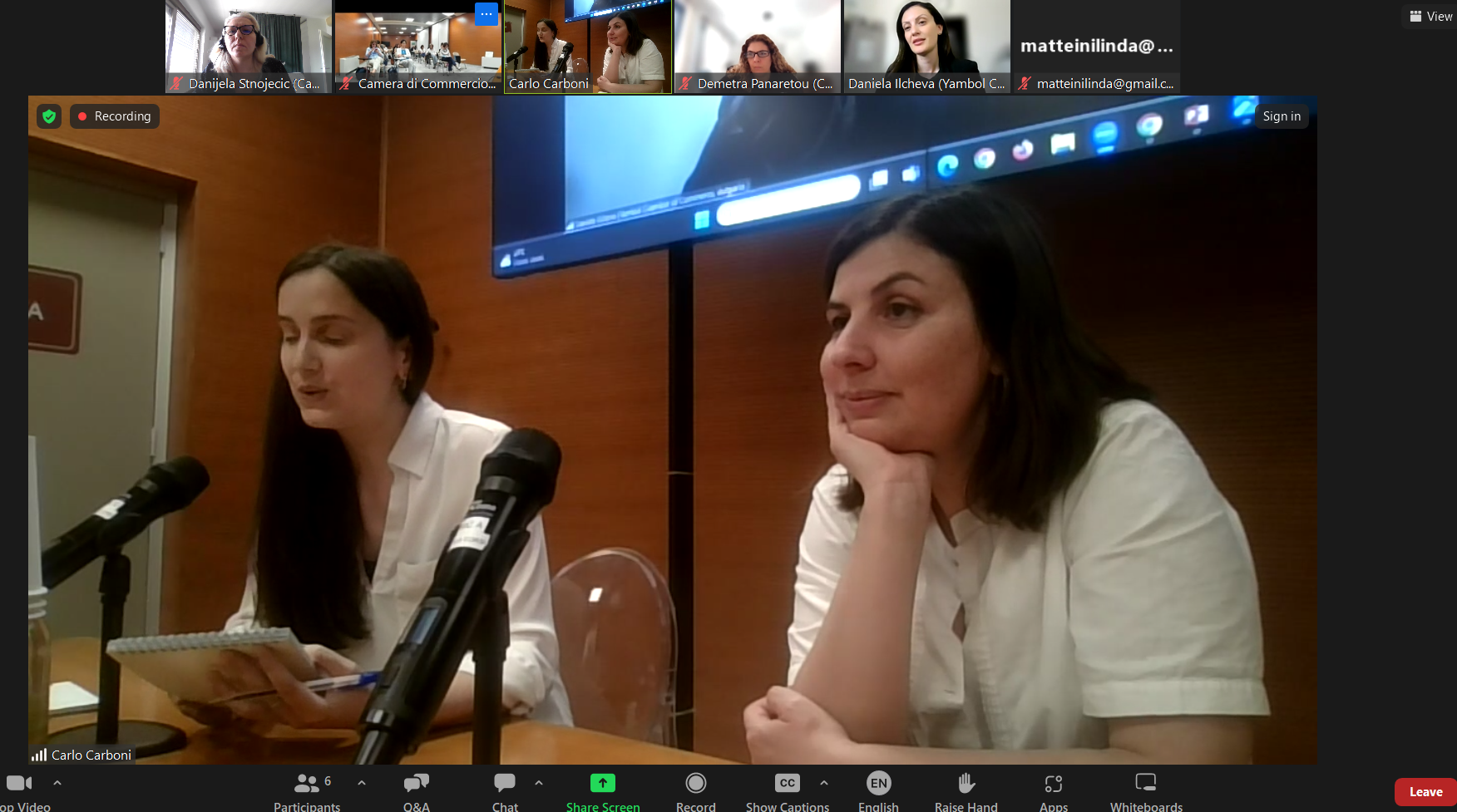
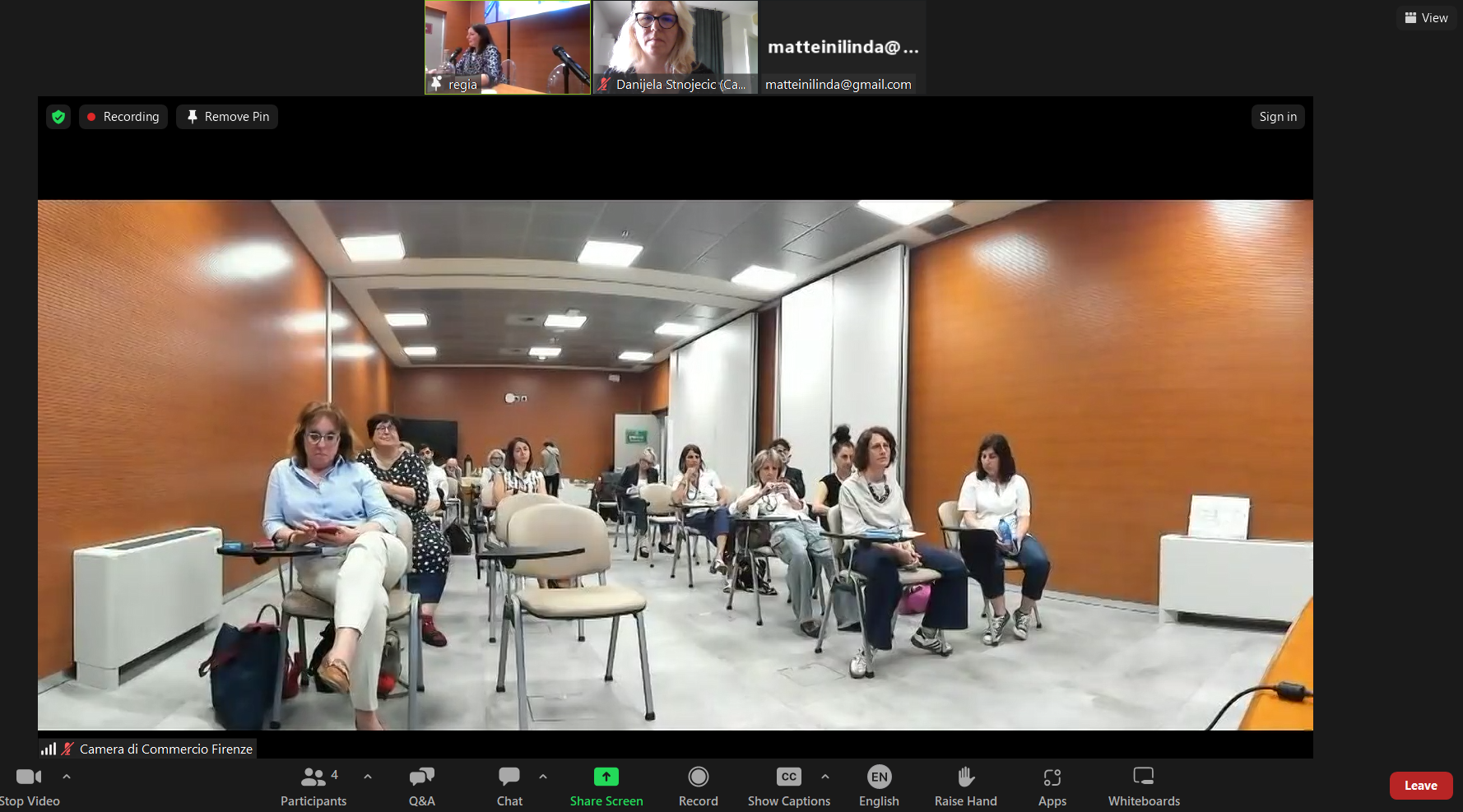
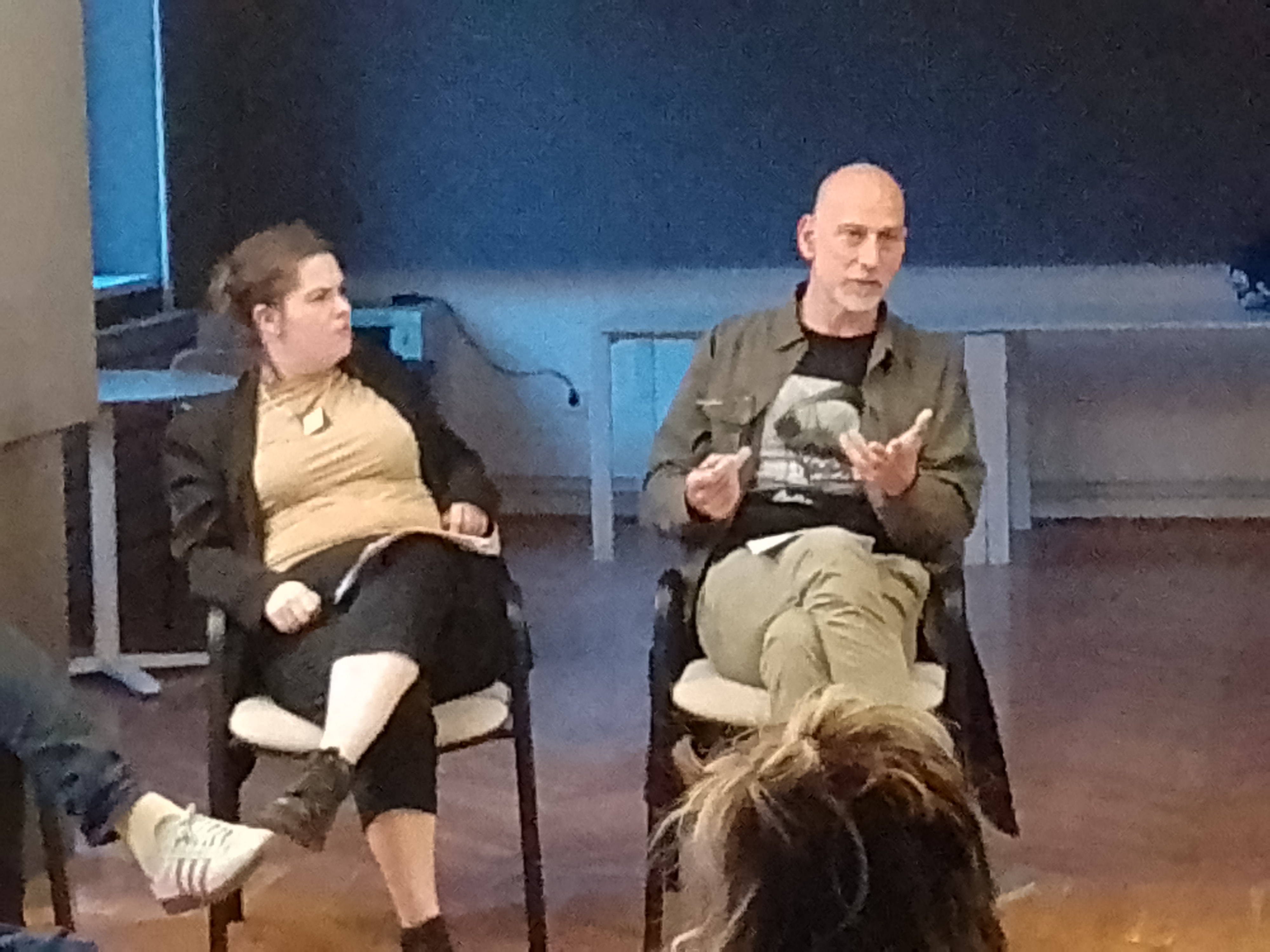
Teamwork2: “Combating Sexual Harassment in the Workplace”
The second in a series of planned workshops was held on April 30 2024
As part of the international project Teamwork2: “Combating Sexual Harassment in the Workplace”, the second in a series of planned workshops was held on April 30, 2024, at the Croatian Employers’ Association. The workshop participants, commissioners for protecting workers’ dignity, came from various companies and institutions, including the Faculty of Law, Zagreb Holding, Croatian Employers’ Association, Croatian Chamber of Economy, Croatian Radio Television, and Kumrovec Elementary School. The workshop was led by Nebojša Paunović, legal advisor to the Ombudswoman for Gender Equality, and Radojka Kraljević, a psychologist and associate professor at Libertas University.
The workshop aimed to develop a zero-tolerance policy for sexual harassment and violence, and to adopt an internal legal architecture for violence prevention, victim protection, perpetrator punishment, and reintegration into the collective.
Paunović emphasized the importance of continuous education on gender equality for all employees, a concrete policy of gender and sexual equality, zero tolerance for non-consensual sexual relations, and the adoption of an internal legal architecture that enables effective victim protection and fair prosecution and punishment of perpetrators.
During the workshop, participants discussed adapting legal and internal regulations to the institution, organizing general education on gender equality, professional education, and problems with punishment due to the difficulty of regulating the structure of sexual discrimination punishment.
Radojka Kraljević led the workshop segment on establishing contact between the commissioner and the victim of workplace harassment. In the practical part of the workshop, a communication strategy and establishing contact with the victim were practiced. Participants learned how to ensure the necessary conditions for conversation, understand the emotional and physical state of the victim, familiarize themselves with the protocol of action and legal regulation. It was particularly emphasized that it is most important to ensure that the victim feels safe and a supportive atmosphere so that the report can be effectively carried out.
Special attention was paid to reporting and presenting cases of sexual harassment in the media. Recommendations were made on how to report on workplace sexual harassment when it comes to the media, and in the practical part, good and bad practices in reporting were analyzed on prepared examples.
Each company must adopt an internal legal framework according to which the commissioner operates. Despite possible formal-legal omissions, the victim must be protected. The court may refer to procedural errors, but the procedure does not necessarily have to be completed within eight days, but must be initiated within eight days.
According to the regulations of the Faculty of Law in Zagreb, the procedure for extraordinary dismissal of the perpetrator, in the case of sexual harassment, must be carried out within eight days. Every employer is obliged to define their regulations and act according to them, and make them available.
The commissioner’s procedure sends a message about the employer’s equality and worker protection. Suppose it is a criminal offense, such as sexual harassment under Article 156 of the Criminal Code. In that case, a report must be submitted to the competent state attorney’s office, regardless of the victim’s position. Without the victim’s admission, the legal procedure cannot be carried out, and reporting may not be inclined if the victim does not want it. However, we must all report a criminal offense and report that we have information.
The final discussion and evaluation were conducted by Višnja Ljubičić, Ombudswoman for Gender Equality, and Lovorka Marinović, project manager in Croatia, president of the Center for New Initiatives. Lovorka Marinović thanked everyone for participating and expressed hope that this initiative will help everyone in their further work.
Višnja Ljubičić, Ombudswoman for Gender Equality, emphasized that the Ombudswoman’s institution is available to all institutions for the development of legal architecture and internal acts for employers. She pointed out that victims of sexual discrimination often leave the labor market for a long time.
Last year, nine criminal charges were filed, always with the consent of the victim. Sexual harassment is a taboo topic that is difficult to discuss. The role of the Ombudswoman includes protecting the identity and anonymity of the report. It is possible to act on an anonymous report, but the information must be well presented. Regardless of whether the reports are anonymous or with a name and surname, the Ombudswoman will conduct the procedure. However, victims need to report such incidents so that perpetrators can be properly prosecuted.
It was concluded that efforts need to be made to educate workers, employers, and students, and to raise awareness in society through education. Examples of good practice and equal rules for everyone are key to changing society. Through such initiatives, we can hope that society will change for the better.
The project is being implemented in seven countries: Greece, Cyprus, Bulgaria, Croatia, Italy, Spain, and Belgium, and is funded by the European Union as part of the CERV program. In Croatia, the project is being implemented by the Center for New Initiatives in cooperation with the Office of the Ombudswoman for Gender Equality.




Combating Workplace Sexual Harassment: The “Teamwork 2” Project - promo film
Combating Workplace Sexual Harassment: The “Teamwork 2” Project
On February 6, 2024, an international conference was held at the European House of Europe in Zagreb, addressing the critical issue of sexual harassment in the workplace. This pervasive problem undermines the dignity and safety of workers, especially women. Unfortunately, many victims hesitate to report incidents due to fears of job loss, stigmatization, and lack of trust in institutions.
During the conference, representatives from organizations across Belgium, Spain, Bulgaria, Italy, Greece, Cyprus, and Croatia came together. They resolved to continue media campaigns and awareness-raising efforts throughout the year. Additionally, they plan to create a comprehensive handbook explaining reporting systems and mechanisms for addressing workplace sexual harassment.
Click on te photo to see video.
EU Project on Combating Sexual Violence in the Workplace: 2nd Transnational Project Meeting
6 February 2024
at House of Europe, Augusta Cesarca 4, Zagreb, Croatia
On February 6, 2024, an international conference on combating sexual harassment in the workplace was held at the European House of Europe in Zagreb. The conference addressed the issue of sexual harassment, which is a common and serious occurrence that undermines the dignity and safety of workers, particularly women. Many victims hesitate to report such incidents due to fear of job loss, stigmatization, and lack of trust in institutions. Society often downplays or justifies violence, sending discouraging messages to victims.
During the meeting, which took place in Zagreb, representatives from organizations implementing the project in Belgium, Spain, Bulgaria, Italy, Greece, Cyprus, and Croatia decided to continue media campaigns and awareness-raising efforts until the end of the year. Additionally, they plan to create a handbook that explains the reporting systems and mechanisms for addressing workplace sexual harassment.
The “Teamwork 2” project, funded by the European Union through the Rights, Equality, and Citizenship program, focuses on preventing and addressing cases of sexual harassment in the workplace. The project aims to educate and empower victims, employers, trade unions, and civil society organizations to recognize, report, and address violence. It also seeks to improve mechanisms for victim protection and perpetrator accountability.
Thirteen civil society organizations from seven European countries—Croatia, Greece, Italy, Spain, Bulgaria, and Cyprus—participate in the project alongside the Gender Equality Ombudswoman. Together, they aim to establish a functional victim protection system through the “Teamwork 2” initiative.
Nikos Moraitis, from the Industrial and Business Training Institute in Greece, succinctly described the project as follows: raising awareness in companies about the issue of sexual harassment in the workplace, empowering workers to come forward and report incidents of sexual harassment, and assisting companies in improving their mechanisms to combat sexual harassment through workshops and education.
Lovorka Marinović, from the Center for New Initiatives, highlighted a grim reality based on statistical data from the UNDP’s Gender Social Norms Index. Over the past decade, there has been no improvement in attitudes toward women. The research, conducted across 80 countries representing 80% of the world’s population, revealed the following:
- 49% of respondents believe that men make better politicians than women.
- Only 27% think that gender equality is crucial for democracy.
- 46% believe that men have greater rights in the workplace.
- 25% consider it acceptable for a man to physically harm his partner.
These findings did not surprise Daša Šilović from the Central and East European Network for Gender Issues. She emphasized that this project aims to confront a culture of violence, particularly in our region. The roots of this violence lie in wars, poverty, fear, and hopelessness, which then manifest across various levels. The issue of power dynamics plays a crucial role—those who are stronger and dominant perpetuate violence. Real change requires policy shifts at decision-making levels; merely taking to the streets is insufficient. The problem persists universally, even when laws exist but are not effectively enforced due to political indifference.
Nebojša Paunović, a legal advisor at the Office of the Ombudswoman for Gender Equality, emphasized that they are partners in the project and that the Ombudswoman offers assistance and support to victims of sexual harassment. He highlighted that through education and continuous training, sensitivity to such offenses is developed, and victims are empowered with the help of their surroundings. By reporting incidents, victims understand the purpose of their complaint. He encouraged both women and men to reach out to the Ombudswoman if they experience sexual harassment in the workplace and their employer fails to protect them. He emphasized that the Office will penalize employers who do not provide mechanisms to safeguard workers’ dignity.
As part of Project Teamwork 2, several companies and public institutions in Croatia will undergo training to prevent sexual harassment in the workplace. Each of us can take action starting tomorrow by not turning a blind eye to violence but instead assisting victims and standing up against perpetrators.

